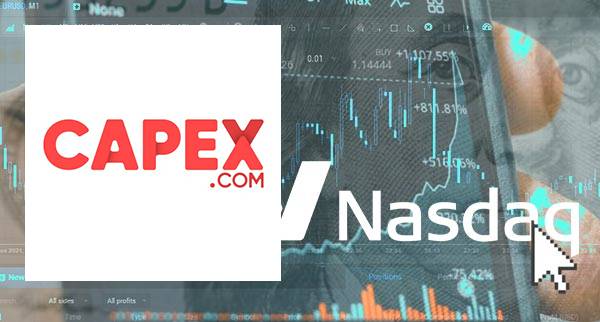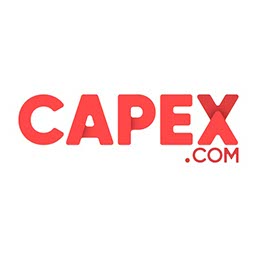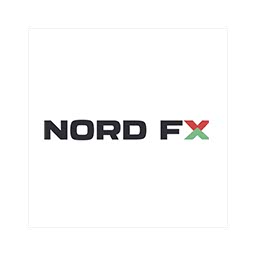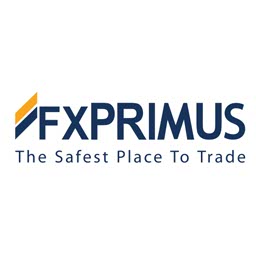The NASDAQ and related financial instruments are available to trade on CapeX in a variety of ways. Because of the types of businesses that are included on its listing, the NASDAQ is a very significant index for CapeX traders. These are almost exclusively technological businesses, some of which haven't even reached the profitable stage yet. When there is widespread fear or unrest in the world, CapeX investors will typically pull their money out of risky assets and place it in investments that are less volatile on CapeX for a period of time.
However, when there is a shift toward bullish sentiment in the market, the index's price is likely to experience a very dynamic rebound which CapeX traders may be able to capitalize on. This can be attributed to macroeconomic factors, which are causing CapeX investors to return to investing in technology-related stocks.
The NASDAQ, despite having higher levels of volatility and risk for CapeX traders, typically offers returns that are even higher than those of the S&P 500 index. In order for some CapeX traders to participate more actively on the New York Stock Exchange, they may be willing to tolerate higher levels of volatility in exchange for the possibility of higher levels of profit (NASDAQ) on the CapeX trading platform.

Trading on the NASDAQ is reserved for active CapeX traders who are comfortable operating in an environment with fluctuating prices. Trading on the NASDAQ enables CapeX investors to capitalise on volatile market conditions and maintain open positions despite extremely rapid price changes. The use of leverage offered by CapeX is fraught with peril and high risk but has the potential to significantly boost CapeX traders earnings.
When you trade the NASDAQ with CapeX, you give yourself the ability to open positions during extremely rapid price movements. High risk instruments that can result in losses but has the potential to increase a CapeX day trader's profits.
Online trading of NASDAQ or the US100 with CapeX has become increasingly popular in recent years. Trading with CapeX online enables you to begin trading on the NASDAQ without ever having to leave the comfort of your own home and CapeX supports trading indices like the NASDAQ no commissions and low spreads. Additionally, because of the high liquidity of the NASDAQ market, CapeX traders are able to close your position at any time with just the click of your mouse.
CapeX allows the trading of stocks and shares of companies that are listed on the NASDAQ, such as Meta FB.US, Tesla TSLA, Amazon AMZN, Microsoft MSFT, NVIDIA NVDA, NIO, Moderna MRNA, as well as shares of a large number of other technology-related companies listed on CapeX.
CapeX offers the US100 instrument, and CapeX provides real-time NASDAQ quotes for financial instruments related to the NASDAQ. Because the NASDAQ is a very volatile instrument and its price can make significant movements at any given moment, CapeX traders need to monitor live markets related to the NASDAQ using CapeX technical analysis tools as it is happening in real time.
Trading in US100 with CapeX is possible during opening hours in the week, beginning at 00:05 CET and ending at 23:00 CET, with a brief break occurring between 22:15 CET and 22:30 CET. When the market is closed CapeX traders orders will not be actioned until the NASDAQ opens.
Other NASDAQ exchanges are available as financial instruments with CapeX. The NASDAQ composite is an index that is available on CapeX and it tracks the performance of more than 3,000 different companies that are traded on the NASDAQ stock exchange. The NASDAQ composite exchange available on CapeX brings together some of the most innovative companies in the world in the fields of technology and biotechnology, such as Microsoft, Google, Oracle, Intel, and Amazon.
These stocks listed on the NASDAQ composite need to satisfy the stringent liquidity requirements of CapeX and financial regulators.
The NASDAQ 100 can also be traded on CapeX. An index that tracks the performance of the 100 largest non-financial companies that are traded on the NASDAQ Stock Market is called the NASDAQ 100. The composition of the NASDAQ is established with the assistance of a specialised algorithm, and weightings are modified according to the weighting that is assigned to each company in the index. CapeX traders can trade the NASDAQ 100 or NASDAQ constituent stocks.
The Pre-Market Indicator (PMI) projects what the opening prices will be on CapeX based on the closing price of the pre-market trade's most recent transaction. The PMI also takes into consideration the news from the previous day, which enables CapeX traders to more accurately predict market movements.
The technology industry is heavily represented among the primary factors that have an effect on stocks traded on the NASDAQ with CapeX.
The price action of assets can be analysed using CapeX charts with the help of a technique called technical analysis. It can assist CapeX traders in identifying trends, locating potential reversals, and determining the general sentiment of the market through CapeX. There are a number of CapeX technical indicators that can locate buy signals and sell signals based on historical patterns. These CapeX signals can be used to make trading decisions.
The Moving Average Convergence Divergence (MACD) is just one of many different indicators that CapeX traders use. In addition to this, it is essential to have an understanding that CapeX technical analysis is not always reliable. CapeX traders need to make sure that they use an appropriate amount of CapeX leverage and that they follow the appropriate strategies for both money management and risk management when trading on the CapeX trading platform.
The NASDAQ can be traded using CFDs on CapeX which are high risk speculative trades on the up or down price movement of the NASDAQ using leverage. Real NASDAQ underlying assets are not trading with CapeX NASDAQ CFDs, its a deal on the price movement only with the CapeX NASDAQ CFD broker using borrowed money. NASDAQ CFD trading allows CapeX traders to trade based on the NASDAQ at great exposure to their broker than their CapeX deposited amount.
CFD Trading on the NASDAQ US100 with CapeX provides traders with the opportunity to open both short and long positions. You will only need a 5 percent margin in order to open a position if you use a CapeX leverage factor of 1:20. Due to the high risk level presented by CapeX leveraged CFD instruments, you should only risk money on the CapeX trading platform that you can afford to lose.
When you engage in this kind of trading with CapeX, the only costs you'll have to pay are the spread (the difference between the buying price ASK and the selling price BID) and the swap points. The CapeX spread is extremely low and ranges from a few millicents to a few dollars, depending on the size of your CapeX NASDAQ position.
NASDAQ composite trading is popular on CapeX. An index that tracks the performance of more than 3,000 common stocks that are traded on the NASDAQ stock market is known as the NASDAQ Composite. Alongside the Dow Jones Industrial Average and the S&P 500, this index is one of the indices that has high trading volume and is available on CapeX.
The NASDAQ composite is an important financial index on CapeX. The largest companies that are traded on the NASDAQ Stock Market are included in the NASDAQ Composite. The majority of the businesses on the list are technology-based, including Apple Inc., Microsoft Corporation, Facebook, and NVIDIA which are all listed on CapeX.
CapeX traders should be aware of the risks when trading tech stocks and the NASDAQ on CapeX. In March of 2000, the NASDAQ Composite reached an all-time high of 5,132.52 points. The milestone of 1,000 points was reached by the index for the very first time in July of 1995. Between 1995 and 2005, the NASDAQ showed a variety of results, including both boom and bust phases associated with the dot-com industry. This can make the NASDAQ hold potential risks associated with fad technology stocks.
When trading the NASDAQ with CapeX you will need to make sure you are aware of all the fees and commissions that will be charged to you. These CapeX fees may have an impact on your NASDAQ investment, so CapeX NASDAQ trading costs must be factored in.
CapeX charges fees on executing buy and sell orders on the CapeX trading platform. Even commission free NASDAQ stocks may have costs added to the spreads provided by CapeX. There may be CapeX overnight fees associated with NASDAQ trading on CapeX and CapeX traders must be aware of fees that may be charged for inactive CapeX live trading accounts. Although not charged by CapeX, there may be currency conversion fees when depositing to CapeX and withdrawing from CapeX depending on what currency your payment method is in.
CapeX supports a range of funding and withdrawal methods including . Different CapeX 3rd party withdrawal methods have processing times ranging from 1 - 10 days.

🤴 CapeX is Used By: 10,000
⚡ CapeX is Regulated by: CySEC, FSCA, ADGM
💵 What You Can Trade with CapeX: Forex, Majors, Indices, Energies, Metals, Agriculturals,
💵 Instruments Available with CapeX: 100
📈 CapeX Inactivity Fees:
💰 CapeX Withdrawal Fees: No
💰 CapeX Payment Methods:
💰 CapeX Account Base Currencies:
CapeX Risk warning : Your capital is at risk

🤴 IC Markets is Used By: 180,000
⚡ IC Markets is Regulated by: Australian Securities and Investments Commission (ASIC), Financial Services Authority (FSA), Cyprus Securities and Exchange Commission (CySEC)
💵 What You Can Trade with IC Markets: Forex, Majors, Energies, Metals, Agriculturals,
💵 Instruments Available with IC Markets: 232
📈 IC Markets Inactivity Fees: No
💰 IC Markets Withdrawal Fees: No
💰 IC Markets Payment Methods: Credit Cards, VISA, MasterCard, Debit Cards, Visa, MasterCard, Bank Transfer, PayPal, Neteller, Neteller VIP, Skrill, Poli, Cheque, BPAY, UnionPay, FasaPay, QIWI, RapidPay, Klarna, Electronic wallets (eWallets), Broker to Brokers, Thai Internet Banking, Vietnamese Internet Banking,
💰 IC Markets Account Base Currencies: USD, GBP, EUR, CHF, JPY, SGD, AUD, CAD, HKD, NZD
IC Markets Risk warning : Losses can exceed deposits

🤴 Roboforex is Used By: 10,000
⚡ Roboforex is Regulated by: RoboForex Lid is regulated by Belize FSC, License No. 000138/7, reg. number 000001272
💵 What You Can Trade with Roboforex: Forex, Minors, Majors, Exotics, Indices, Metals,
💵 Instruments Available with Roboforex: 100
📈 Roboforex Inactivity Fees: No
💰 Roboforex Withdrawal Fees: Yes
💰 Roboforex Payment Methods: Credit cards, VISA, MasterCard, JCB, Debit cards, Bank Transfer, Electronic wallets (eWallets), Neteller, Skrill, Perfect Money, AdvCash, BPAY, China UnionPay, FasaPay, CashU, WeChat Pay, ecoPayZ, AstroPay, Sofort, Giropay, Poli, Wepay, iDEAL, Payoneer,
💰 Roboforex Account Base Currencies: USD, EUR, XAU
Roboforex Risk warning : Losses can exceed deposits

🤴 AvaTrade is Used By: 200,000
⚡ AvaTrade is Regulated by: Central Bank of Ireland, Australian Securities and Investments Commission (ASIC), Financial Services Authority (FSA), South African Financial Sector Conduct Authority (FSCA), Financial Stability Board (FSB), Abu Dhabi Global Markets (ADGM), Financial Regulatory Services Authority (FRSA), British Virgin Islands Financial Services Commission (BVI)
💵 What You Can Trade with AvaTrade: Forex, Minors, Cryptocurrencies, Majors, Exotics, Indices, UK Stocks, US Stocks, Energies, Metals, Agriculturals, ETFs, IPO, Bonds,
💵 Instruments Available with AvaTrade: 1000
📈 AvaTrade Inactivity Fees: No
💰 AvaTrade Withdrawal Fees: No
💰 AvaTrade Payment Methods: Credit cards, VISA, MasterCard, Bank Transfer, Electronic wallets (eWallets), PayPal, Neteller, WebMoney, Payoneer,
💰 AvaTrade Account Base Currencies: USD, GBP, EUR, JPY, AUD
AvaTrade Risk warning : 71% of retail CFD accounts lose money

🤴 FP Markets is Used By: 10,000
⚡ FP Markets is Regulated by: Australian Securities and Investments Commission (ASIC), Cyprus Securities and Exchange Commission (CySEC), Financial Services Authority (St. Vincent and the Grenadines)
💵 What You Can Trade with FP Markets: Forex, Minors, Majors, Exotics, Indices, Metals,
💵 Instruments Available with FP Markets: 100
📈 FP Markets Inactivity Fees: No
💰 FP Markets Withdrawal Fees: No
💰 FP Markets Payment Methods: Credit cards, VISA, MasterCard, Debit cards, Bank Transfer, Electronic wallets (eWallets), Neteller, BPAY, POLi, PayPal, Neteller, Skrill, PayTrust, NganLuong VN, Fasapay, Broker to Broker, OnlinePay China, Directa24, Klarna, PayTrust88, Payoneer,
💰 FP Markets Account Base Currencies: USD, GBP, EUR, CHF, JPY, SGD, AUD, CAD, HKD, NZD
FP Markets Risk warning : Losses can exceed deposits

🤴 NordFX is Used By: 10,000
⚡ NordFX is Regulated by: Cyprus Securities and Exchange Commission (CySEC), License No: 209/13
💵 What You Can Trade with NordFX: Forex, Majors, Metals,
💵 Instruments Available with NordFX: 50
📈 NordFX Inactivity Fees: No
💰 NordFX Withdrawal Fees: No
💰 NordFX Payment Methods: Bank Transfer, Neteller, PerfectMoney, WebMoney, FasaPay, CashU, Payza, QIWI,
💰 NordFX Account Base Currencies: USD, EUR
NordFX Risk warning : Losses can exceed deposits

🤴 XTB is Used By: 250,000
⚡ XTB is Regulated by: Financial Conduct Authority (FCA), FCA number FRN 522157, Cyprus Securities and Exchange Commission (CySEC), CySEC Licence Number: 169/12, Comision Nacional del Mercado de Valores, Komisja Nadzoru Finansowego, Belize International Financial Services Commission (IFSC) under license number IFSC/60/413/TS/19, Polish Securities and Exchange Commission (KPWiG), Dubai Financial Services Authority (DFSA), Dubai International Financial Center (DIFC),Financial Sector Conduct Authority (FSCA), XTB AFRICA (PTY) LTD licensed to operate in South Africa
💵 What You Can Trade with XTB: Forex, Minors, Cryptocurrencies, Majors, Exotics, Indices, UK Stocks, US Stocks, Pennystocks, Energies, Metals, Agriculturals, ETFs,
💵 Instruments Available with XTB: 4000
📈 XTB Inactivity Fees: Yes
💰 XTB Withdrawal Fees: No
💰 XTB Payment Methods: Credit cards, MasterCard, Maestro, Visa, Debit cards, Bank Transfer, Electronic wallets (eWallets), PayPal, Neteller, Skrill, Poli, Paysafe, Payoneer,
💰 XTB Account Base Currencies: USD, GBP, EUR
XTB Risk warning : 76% - 83% of retail investor accounts lose money when trading CFDs with this provider. You should consider whether you understand how CFDs work and whether you can afford to take the high risk of losing your money.

🤴 Pepperstone is Used By: 89,000
⚡ Pepperstone is Regulated by: Financial Conduct Authority (FCA), Australian Securities and Investments Commission (ASIC), Cyprus Securities and Exchange Commission (CySEC), Federal Financial Supervisory Authority (BaFin), Dubai Financial Services Authority (DFSA), Capital Markets Authority of Kenya (CMA), Pepperstone Markets Limited is incorporated in The Bahamas (number 177174 B), Licensed by the Securities Commission of the Bahamas (SCB) number SIA-F217
💵 What You Can Trade with Pepperstone: Forex, Minors, Cryptocurrencies, Majors, Exotics, Indices, Energies, Metals,
💵 Instruments Available with Pepperstone: 100
📈 Pepperstone Inactivity Fees: Yes
💰 Pepperstone Withdrawal Fees: No
💰 Pepperstone Payment Methods: Credit cards, VISA, MasterCard, Debit cards, Bank Transfer, Electronic wallets (eWallets), PayPal, Neteller, BPAY, POLi, UnionPay, FasaPay, QIWI, Payoneer,
💰 Pepperstone Account Base Currencies: USD, GBP, EUR, CHF, JPY, SGD, AUD, CAD, NZD, HKD
Pepperstone Risk warning : CFDs are complex instruments and come with a high risk of losing money rapidly due to leverage. Between 74-89 % of retail investor accounts lose money when trading CFDs. You should consider whether you understand how CFDs work and whether you can afford to take the high risk of losing your money

🤴 XM is Used By: 10,000,000
⚡ XM is Regulated by: Financial Services Commission (FSC), Cyprus Securities and Exchange Commission (CySEC), Australian Securities and Investments Commission (ASIC)
💵 What You Can Trade with XM: Forex, Stock CFDs, Commodity CFDs, Minors, Majors, Exotics, Equity Indices CFD, Energies CFD, Precious Metals
💵 Instruments Available with XM: 1000
📈 XM Inactivity Fees: Yes
💰 XM Withdrawal Fees: No
💰 XM Payment Methods: Credit cards, Debit cards, Bank Transfer, Electronic wallets (eWallets), Moneta, ABAQOOS, PRZELEWY24, Neteller, PerfectMoney, WebMoney, UnionPay, FasaPay, CashU, Payza, QIWI, SOFORT, Giropay, Payoneer, Skrill,
💰 XM Account Base Currencies:
XM Risk warning : CFDs are complex instruments and come with a high risk of losing money rapidly due to leverage. 77.74% of retail investor
accounts lose money when trading CFDs with this provider. You should consider whether you understand how CFDs work and whether you can afford
to take the high risk of losing your money.

🤴 eToro is Used By: 20,000,000
⚡ eToro is Regulated by: Financial Conduct Authority (FCA), Cyprus Securities and Exchange Commission (CySEC), Markets In Financial Instruments Directive (MiFID), Australian Securities and Investments Commission (ASIC)
💵 What You Can Trade with eToro: Forex, Minors, Cryptocurrencies, Majors, Exotics, Indices, UK Stocks, US Stocks, Energies, Metals, Agriculturals, ETFs,
💵 Instruments Available with eToro: 2000
📈 eToro Inactivity Fees: Yes
💰 eToro Withdrawal Fees: Yes
💰 eToro Payment Methods: Credit cards, VISA, MasterCard, Maestro, Debit Cards, Bank Transfer, PayPal, Neteller, Skrill, WebMoney, Giropay, eWallets,
💰 eToro Account Base Currencies: USD
eToro Risk warning : 51% of retail investor accounts lose money when trading CFDs with this provider.

🤴 FXPrimus is Used By: 10,000
⚡ FXPrimus is Regulated by: Cyprus Securities and Exchange Commission (CySEC), Markets In Financial Instruments Directive (MiFID), Vanuatu Financial Services Commission (VFSC)
💵 What You Can Trade with FXPrimus: Forex, Minors, Majors, Exotics, Indices, UK Stocks, US Stocks, Energies, Metals,
💵 Instruments Available with FXPrimus: 130
📈 FXPrimus Inactivity Fees: No
💰 FXPrimus Withdrawal Fees: Varies
💰 FXPrimus Payment Methods: Credit cards, VISA, MasterCard, Debit cards, Bank Transfer, Electronic wallets (eWallets), Neteller, Skrill, Payoneer, SafeCharge, TrustPay, EmerchantPay, Bitcoin, UnionPay, FasaPay, Giropay,
💰 FXPrimus Account Base Currencies: USD, GBP, EUR, SGD, PLN
FXPrimus Risk warning : Losses can exceed deposits

🤴 easyMarkets is Used By: 142,500
⚡ easyMarkets is Regulated by: Cyprus Securities and Exchange Commission (CySEC), Australian Securities and Investments Commission (ASIC), Financial Services Authority (FSA), British Virgin Islands Financial Services Commission (BVI)
💵 What You Can Trade with easyMarkets: Forex, Minors, Cryptocurrencies, Majors, Exotics, Indices, Energies, Metals, Agriculturals, Options,
💵 Instruments Available with easyMarkets: 200
📈 easyMarkets Inactivity Fees: No
💰 easyMarkets Withdrawal Fees: No
💰 easyMarkets Payment Methods: Credit cards, MasterCard, Maestro, American Express, JCB, Astropay, Debit cards, Bank Transfer, SOFORT, GiroPay, iDeal, Bpay, Electronic wallets (eWallets), Skrill, Neteller, WebMoney, UnionPay, WeChatPay, FasaPay, STICPAY,
💰 easyMarkets Account Base Currencies: USD, GBP, EUR, CHF, JPY, SGD, AUD, CAD, CNY, CZK, HKD, ILS, MXN, NOK, NZD, PLN, SEK, TRY, ZAR
easyMarkets Risk warning : Your capital is at risk
If CapeX isn’t quite what you are looking for you can check out some of the best CapeX alternatives below.
If you would like to see CapeX compared against some of the best CapeX Account alternatives available right now you can do so by clicking on the links below.